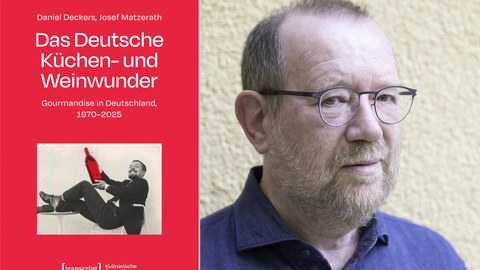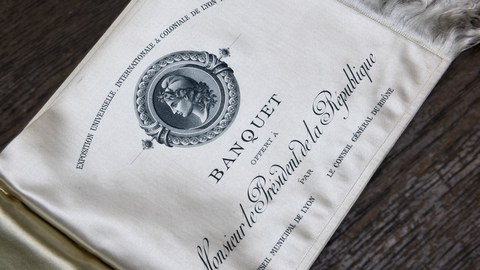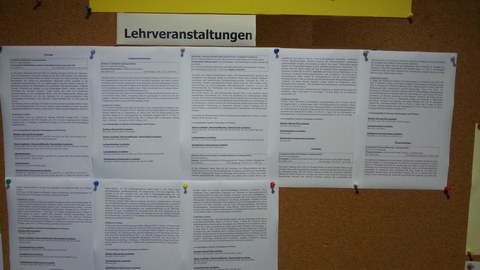 © Gemeinfrei. kostenlose-fotos.eu
© Gemeinfrei. kostenlose-fotos.eu
The Chair of History of Saxony
Regional history deals with small and medium-sized areas, i.e. places, cities, territories, landscapes and regions. Our globalized present is not only characterized by a wide range of boundaries, but also by a new rhetoric of home and a focus on supposed cultural characteristics and identities. In this field of tension, the history of region and immediate living environment can contribute to a critical perspective on historical localization and identity formation processes.
The claim and at the same time the attractiveness of regional history lies in the fact that it covers the entire spectrum of historical topics within a defined area, from the Middle Ages to contemporary history. This includes Politics and the Constitution as well as the economy, church, society and everyday life. In doing so, regional history makes use of the entire spectrum of historical and cultural methods and seeks interdisciplinary exchange with ethnology/cultural anthropology, historical geography or historical linguistics. A particular challenge is posed by comparative regional history, i.e. the analysis of historical phenomena in several regions. More recently, regional history has also begun to take a closer look at the European and global contexts of local and regional phenomena.
Saxon regional history focuses on Saxony in its respective historical dimensions, such as the Free State, the Kingdom or the Electorate of Saxony. However, areas in the region defined by nature, economy and culture, such as the Erzgebirge, Vogtland and Lusatia, also form areas of investigation in the history of the state. Since its transfer to Saxony in 1635, Lusatia has acted as a bridge landscape. Similarly, Saxony's European neighbors play an important role due to their diverse historical contacts and interdependencies. Particular attention is paid to Poland, which was repeatedly linked to Saxony in a personal union during the long 18th century.
Core research areas
The chair team conducts research into Saxon and comparative regional history from the Middle Ages to the 20th century. The current epochal focus is on the history of the early modern period and the 19th century. In addition to Saxony, regional points of reference currently include Württemberg, Savoy-Piedmont, Rhineland-Westphalia and Franconia as well as Poland-Lithuania. In the work of the chair holder, Prof. Dr. Andreas Rutz, the pre-modern period, rule, space and cartography, women's and gender history, education and schools, confessionalization and monastic culture as well as the European and global dimensions of Saxon history play a special role. For the 19th and 20th centuries, his focus is on questions of the culture of remembrance and the development of historical images. Prof. Dr. Josef Matzerath is currently primarily concerned with questions of consumer history and, in particular, food history. Previously, his research focused on the nobility, Saxon parliamentarianism and the history of the Saxon state parliament. As part of the DFG project "Weibliche Herrschaftspartizipation in der Frühen Neuzeit. Regentschaften im Heiligen Römischen Reich in westeuropäischer Perspektive", the chair conducts important basic research in territorial regency (Stefanie Wenzel M.A.). As part of dissertation projects, research is also focused on urbanity in the culture of memory and processes of appropriation of social space in modern residential cities of the 19th and early 20th centuries(Lennart Kranz M.A.) and on the reception of the non-European world in 18th century Saxony(Sophie Döring M.A.).
Research in Dresden
Dresden is an attractive location for regional history and rich in tradition. The first associations such as the Königlich Sächsische Altertumsverein (1992: re-established as the Verein für sächsische Landesgeschichte) or the Dresdner Geschichtsverein date back to the middle of the 19th century. Dresden is also the origin place of the Gesamtverein der Deutschen Geschichts- und Altertumsvereine, founded in 1852, which still publishes the Blätter für deutsche Landesgeschichte today.
While university teaching and research on Saxon regional history has been institutionalized in Leipzig since the early 20th century, Dresden has always benefited from its active association life, a rich cultural offering and the locational advantages of a former royal seat. The Royal Collections in particular, which included a library with an excellent reputation, encouraged scholarly research into the past of the city and region from an early stage. As the successor to the Royal Library, the SLUB maintains close relations with the Dresden Chair and is regularly present with teaching formats for researching collections and digital data management. The proximity to the Saxon State Archives - Hauptstaatsarchiv Dresden also offers historians and students an enormous wealth of material. Last but not least, the archive of the TUD Dresden University of Technology, which was founded in 1828 as the Königlich-Technische Bildungsanstalt zu Dresden, also offers a rich collection of sources for Saxon state history.
The Institut für Sächsische Geschichte und Volkskunde (ISGV), a non-university research institute founded in 1997, is of particular importance to Dresden. Digital methods and the open access publication of research data and results play a prominent role here. Other important research institutions with which the Chair works closely are the Sorbian Institute in Bautzen, the Hannah Arendt Institute for Totalitarianism Studies in Dresden, the Dresden State Art Collections, the State Palaces, Castles and Gardens of Saxony and the Dresden City Archives and City Museum.
History of the Chair
The chair was founded by Karlheinz Blaschke (1927-2020), who had previously earned a reputation in the GDR as a system-critical archivist and regional historian that also spread to the Federal Republic of Germany. Blaschke's merit during as professor (1992-1998) lies in his extensive and diverse research and teaching activities. Moreover he co-founded a secure institutional framework for Saxon regional history research with the establishment of the Dresden Chair and the ISGV.
Winfried Müller 's (*1953) many years as professor from 1999 to 2019 not only included the further development of the ISGV, but also a lively expansion of the Chair's activities. From 2001 to 2008, Müller headed the sub-project R "The historical anniversary. Genesis, Staging History and Organizational Performance of an Institutional Mechanism" in the Dresden CRC 537 "Institutionality and Historicity". From 2009 to 2014, this was followed by the specialist management of sub-area G "Discourses of public spirit and religious character between the late Enlightenment and the Vormärz (ca. 1770-ca. 1848)" in the CRC 804 "Transcendence and Public Spirit". Most recently, Müller dealt with Saxon artist's stone drawings and the early Dresden cinema culture 1895-1945.
Andreas Rutz (*1974) has held the Chair of History of Saxony at TU Dresden since 2019. Like his predecessor, he heads the ISGV together with his Leipzig colleague Prof. Dr. Enno Bünz.











